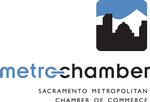
Federal Laws:
Real Estate Settlement Procedures Act (RESPA) is a consumer protection statute, first passed in 1974. It requires lender to give a Good Faith Estimate (GFE) of all closing costs that are going to pay. It was designed to help borrowers from being forced to pay “hidden fees” at closing.
Learn More
Truth in Lending Act (TILA) requires lenders to disclose the terms of a loan, including the total amount of the loan, the annual interest rate and the number, amount and due dates of all payments necessary to repay the loan. The TILA requires additional disclosures and places many restrictions on mortgage.
Learn More
Fair Credit Reporting Act (FCRA) was designed to prevent inaccurate or obsolete information from entering or remaining in a credit report. The law requires credit bureaus to adopt reasonable procedures for gathering, maintaining and disseminating information
Learn More
Equal Credit Opportunity Act (ECOA) was designed to ensure that all qualified people have access to credit and prohibits discrimination based on your sex, marital status, age, race, national origin, or because you receive public assistance income.
Learn More


Loan fraud, forgery, over stated income
With our team of Forensic Loan Auditors you will have all the power you need to check into the validity of your loan. We will educate you on the specific laws and guidelines that were violated in your mortgage so next time you will not fall victim. You will not only know about the laws and regulations but you will also have a full understanding of them.
What is Loan Fraud?
Loan fraud can take many forms. A common theme is the lender's representative will falsify documentation or information, which can happen for a variety of reasons.
1. DOCUMENT FORGERY
This kind of fraud occurs when documents are created to support the loan and delivered as fact. This could be bank statements or even income documentation. This type of fraud usually stems from an inability to get financing approved or when problems come up in the loan process without alternatives.
2. SIGNATURE FORGERY
Large parts of the loan documents may have been presented to the lender that you didn't sign. Major violations of this kind often involve collusion or racketeering by title companies and notary public to disguise the act.
3. STRAW BUYERS
Unethical brokers approached unsuspecting would-be investors, offering a cash payment in exchange for the use of their identity. The brokers would then use this identity to secure a mortgage loan and purchase a property owned by an accomplice at a huge inflated price. The real estate agents and brokers having cashed out, no payments would be made on the loan and the unsuspecting "investor" gets stuck with an over leveraged property in foreclosure. This is fraud on a massive scale and usually involved collusion by real estate agents, lenders, appraisers and title companies.
4. OVERSTATED INCOME or ASSETS
Certain low document loans allowed income and assets to be stated rather than verified. In situations where the actual number was drastically different, and the lender was aware of this fact, fraud may have occurred. It is important to note that a true No-Document loan does not have any income or asset information, even stated. This type of fraud cannot occur in No-Doc loans as they are sometimes called(also known as: NINA, NoDoc, No-No, No Ratio, Fast & Easy).
5. OVERSTATED VALUE
If your home did not initially appraise for what you expected, but a much higher number came in later, this type of fraud may have occurred. A direct result of pressure on the appraiser, the true value of your home was overlooked. Sometimes the appraisal be edited to support the later number.
6. OVERSTEPPED AUTHORITY
Some lenders overstepped their verbal or written authority by running credit and submitting or obtaining information without your prior permission.
7. MISREPRESENTATION
While not truly fraud, your interests were not well represented. if your lender did not fully disclose what your terms were, or was not honest about documentation provided for your signature. Want to talk to someone?



